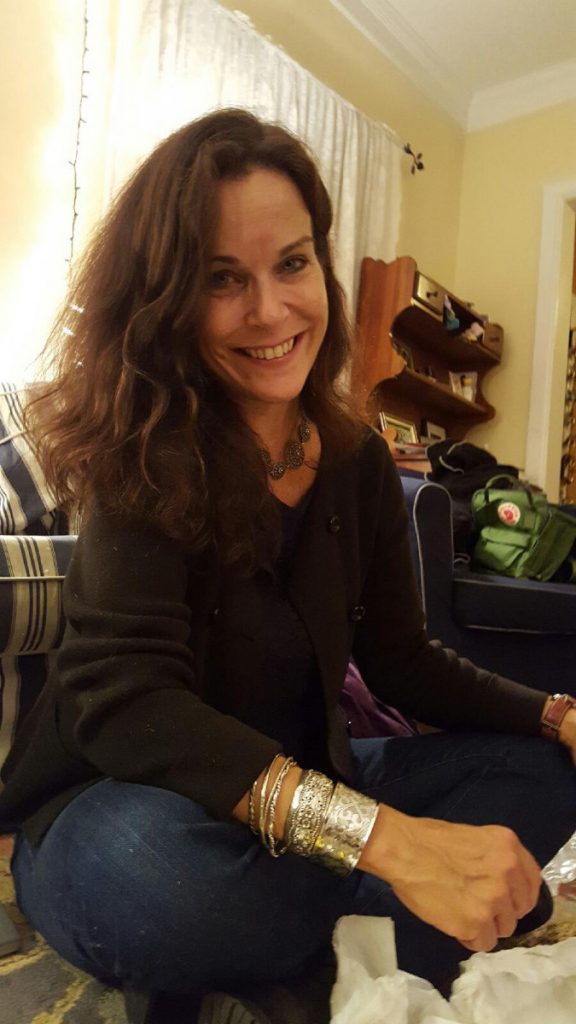The title for Nicole Cooley’s Poetry Brown Bag lecture really says it all: “Why I Don’t Believe in Inspiration: And Why I Study Trash, Love Miniature Chairs and Collect Other People’s Postcards.”
“In many ways, I don’t believe in inspiration,” said Cooley, a poet, writer and the Week Five poet-in-residence at the Chautauqua Writers’ Center. “I don’t get inspired and sit down and write a poem. That’s happened to me maybe twice.”
What Cooley does believe, however, is that the physical objects one might find on their desk — perhaps a postcard or maybe a photograph of an old friend — can be a source for writers to come up with poetry of their own.

“For me, turning to the outside world has always been what awakens my own poetic sensibility,” she said. “I’m really interested in the material world outside myself. I’m not someone who has strong emotions and sits down and writes a poem. I’m someone who is like, ‘OK, we have this miniature sofa I’m going to start writing about, and then I’m going to see how my grief about my mother’s death comes in.’ ”
At 12:15 p.m. Tuesday, July 26, on the porch of the Literary Arts Center at Alumni Hall, Cooley will give her Chautauqua Literary Arts Brown Bag lecture.
“I’m obsessed with obsessions,” she said. “I really believe that your obsessions remain the same. If I told everyone in my class, ‘Go write a poem on this picture frame,’ I can guarantee you that everyone’s poem about the picture frame would be different, and grounded in their own obsessions.”
Cooley said during her time as a student in the Iowa Writers’ Workshop she tried to be the type of person who would sit down and write a “capital P poem.”
“Writing is a place where I allow myself to be messy,” she said. “I try to take everything in and be influenced by whatever. I find that that’s a really productive way to work for me. As one of my writing teachers in grad school said to me, ‘If you have writer’s block, lower your standards.’ ”
Allowing oneself to write, to potentially fail or succeed, is hugely important, Cooley said.
“Permission-giving is essential,” she said. “Permission to write something bad; permission to write something bad that may turn into something good; permission to write something you may never publish because it horrifies you. I think the more we can link writing with freedom and liberation, the happier we will honestly be.”
Cooley wonders, if every time a person wrote something it was like opening a vein, why would any person do it.
“You can write about really difficult things, but there’s a way to make the writing process not tortuous,” she said. “There’s a way to make writing always have a sense of discovery.”




